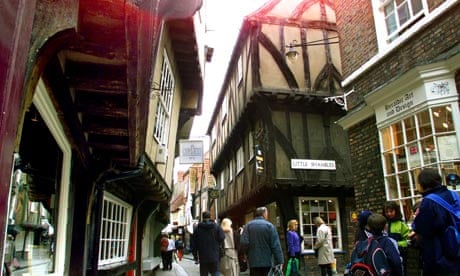
Last week all political eyes were rightly focused on the evolutionary process of devolution and government in Wales (the Silk Report). Yet as we in England watch the blossoming futures of Wales and Scotland we appear too worried to peek at our own governance mirror. Worried because we know we will be shocked by our own lack of direction, our lack of a cohesive policy and our evident self-doubt as a nation.The future doesn’t look rosy for the people of England because our reflection is overshadowed by those of the three main political parties which do not have a viable proposal for the future governance of England. The current state of affairs is quite simply untenable. It is England’s democracy that needs reshaping in a newly emerging Federal Britain, not the others as their national governance looks healthy by comparison. We ignore England at our peril, because unstable government will lead to the poor becoming poorer, the vulnerable ignored and trampled upon.
We need to have the strength of character to keep looking at ourselves, to sort the devolutionary English mess into some sort of order. Political leaders need to shake off British imperialism and they need to rekindle confidence in representing England’s future.

Campaigners for an English parliament understand that there are a number of devolution options up for consideration. This is why we endeavour to encourage serious political debate on what the most progressive option might be in protecting the poor and vulnerable of England. The prospect of Scotland possibly dissolving the Union has heightened the need to find a workable solution; not just for the North of England but for ALL of England.We need to secure employment for future generations across the whole of England so the governmental structures we decide upon are vitally important. It is not good enough for politicians to fudge the democratic future of England in an attempt to save the UK. The West Lothian Question must be answered whilst ensuring democratic accountability. England and the UK must be stabilised so that the country is saved from insular nationalism (ethnic nationalism) whilst progressive nationalism (civic nationalism) is encouraged to flourish. An internationalist approach is beneficial to trade but will only work if you have a solid and coherent national foundation to work from. Regional identity lacks the global brand that the word ‘England’ has, leading to internal turmoil; regionalisation versus centralisation, county versus region, Scotland versus the North of England, British identity versus Englishness, et cetera.
England needs coherent governmental structures that improve on Whitehall centralisation and that won’t cost excessively more than our existing bureaucratic structures. Those structures need to maintain an English sense of community. Politicians need to remember that the people of England have a strong local affinity to their county. A good example of why our politicians should not talk up a north/south divide is cricket, which is played between counties with intense but friendly rivalry. Most countries around the world will play sports based on north/south divides or state boundaries. England does not do this as its history is based on county identity.
There are merits to counties working together on a bottom-up basis to improve the delivery of public services. There are benefits from economies of scale and local knowledge on infrastructure projects which wouldn’t incur additional cost to the taxpayer. And just who decides where the north ends and the south begins in England anyway?A fair and more accountable English Parliament would surely iron out the concerns being expressed by Labour Northern groups. A reorganised English parliament would encourage more involvement from the North because it would need to maintain balance within England whilst working potentially within a UK federal system. Billy Bragg suggested it could be located in York. Perhaps Newcastle? The prospect of England deciding where an English Parliament should be located is exciting and would eliminate southern bias concerns.

One fear is that without an English Parliament, insular nationalism could be replaced by insular regionalisation. One easily foreseeable problem with regional government is that without a collective voice we will run into a asymmetric system which would destabilise relationships between autonomous regions simply by the virtue of the disproportionate number of electors being contained within each region, i.e. a rich region, in times of need, may vote to hold onto their taxes, ignoring the needs of poorer regions. The North of England should consider this before seeking autonomy.The fundamental error made by regional policy makers was to encourage Scottish and Welsh national identity whilst ignoring England’s. For Regionalisation to have worked in 1997, all the countries within the UK should have been mixed together. Regions should have crossed national borders. They did not and insular nationalism is now on the march across the UK. An English Parliament speaking for the whole community would be in a far better position to nurture progressive English nationalism. Proportional Representation could also easily be introduced, killing off fears that an English Parliament would be dominated by Conservatives from the south.
We need to be sure that any proposals deliver what the people want. So let’s start the debate on England’s new democratic future and ask the question…
